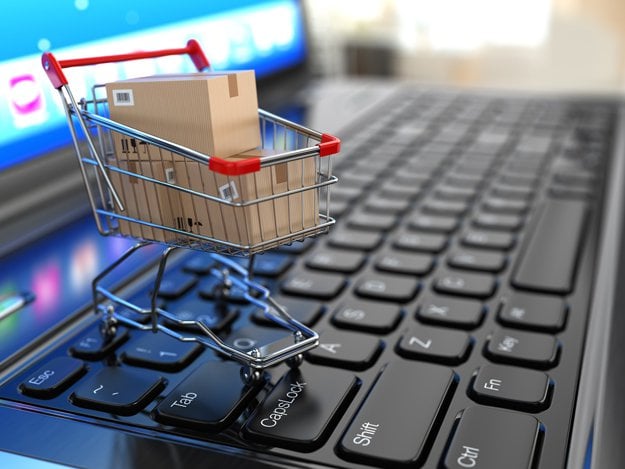E-commerce has rapidly transformed the retail landscape globally, and Pakistan is no exception. With the increasing penetration of the internet and the growing reliance on smartphones, the concept of online shopping has gained significant momentum. Today, the shopyistan.pk is not just a luxury but a necessity for both businesses and consumers. This article explores the rise and growth of e-commerce stores in Pakistan, highlighting the key factors driving this trend, the challenges faced, and the future outlook.
The Evolution of E-commerce in Pakistan
The journey of e-commerce in Pakistan began in the early 2000s, but it was not until the last decade that the sector truly began to flourish. The introduction of 3G and 4G internet services played a pivotal role in expanding the reach of e-commerce across the country. With more people having access to high-speed internet, the number of consumers willing to shop online has grown exponentially.
An E-commerce store in Pakistan provides a platform for businesses to reach customers beyond geographical limitations. Whether it’s a small startup or a large established business, the ability to sell products and services online has opened new avenues for growth. Many traditional retailers have also adapted to this change by setting up online stores to complement their physical outlets.
Key Drivers of E-commerce Growth in Pakistan
Several factors have contributed to the rise of e-commerce stores in Pakistan. Some of the most significant drivers include:
- Internet Penetration: As mentioned earlier, the availability of high-speed internet has been a game-changer for the E-commerce store in Pakistan. More than 100 million people in Pakistan now have access to the internet, and this number continues to grow. This vast user base presents a massive opportunity for online retailers.
- Smartphone Usage: The widespread use of smartphones has further fueled the growth of e-commerce. With affordable smartphones readily available, a significant portion of the population now has the means to shop online. Mobile-friendly websites and apps have made it easier for consumers to browse and purchase products on the go.
- Changing Consumer Behavior: Pakistani consumers are becoming increasingly comfortable with online shopping. The convenience of having products delivered to their doorstep, along with the ability to compare prices and read reviews, has made e-commerce an attractive option for many. An E-commerce store in Pakistan offers a diverse range of products, from fashion and electronics to groceries and home goods, catering to various consumer needs.
- Payment Solutions: The development of secure online payment solutions has also played a crucial role in the success of e-commerce in Pakistan. Services like Easypaisa, JazzCash, and various mobile banking apps have made it easier for consumers to make payments online, thereby boosting their confidence in e-commerce transactions.
- Social Media Influence: Social media platforms like Facebook, Instagram, and WhatsApp have become powerful tools for promoting and selling products online. Many businesses use these platforms to showcase their products, interact with customers, and drive traffic to their E-commerce store in Pakistan.
Challenges Faced by E-commerce Stores in Pakistan
Despite the rapid growth, e-commerce in Pakistan is not without its challenges. Some of the key obstacles faced by e-commerce stores in Pakistan include:
- Logistics and Delivery: Efficient logistics and delivery services are critical for the success of any e-commerce business. However, in Pakistan, the lack of a well-developed logistics infrastructure poses a significant challenge. While major cities have relatively better services, reaching customers in remote and rural areas remains a daunting task for an E-commerce store in Pakistan.
- Customer Trust: Building trust with customers is essential for the sustainability of e-commerce. Unfortunately, issues like counterfeit products, delayed deliveries, and poor customer service have led to a lack of trust among some consumers. An E-commerce store in Pakistan must focus on providing genuine products and reliable service to gain and retain customer trust.
- Regulatory Hurdles: The regulatory environment for e-commerce in Pakistan is still evolving. Issues such as taxation, import duties, and compliance with local laws can create complications for e-commerce businesses. Navigating these regulatory hurdles is crucial for the smooth operation of an E-commerce store in Pakistan.
- Limited Online Payment Adoption: While online payment solutions have improved, a significant portion of the population still prefers cash on delivery (COD). This preference can create cash flow challenges for e-commerce businesses, especially when dealing with high order volumes.
- Cybersecurity Concerns: With the rise of e-commerce, the threat of cyberattacks has also increased. E-commerce stores must invest in robust cybersecurity measures to protect customer data and ensure secure transactions. For an E-commerce store in Pakistan, safeguarding against data breaches is vital to maintaining customer confidence.
The Future of E-commerce in Pakistan
The future of e-commerce in Pakistan looks promising. As the internet continues to reach more people and smartphone usage increases, the potential for e-commerce growth remains vast. Several trends are expected to shape the future of e-commerce in Pakistan:
- Expansion of Marketplaces: Leading e-commerce platforms like Daraz, OLX, and Foodpanda are likely to expand their reach and offerings. These platforms provide a marketplace for various sellers, making it easier for businesses to establish an E-commerce store in Pakistan without having to build their own infrastructure.
- Rise of Niche E-commerce Stores: While large marketplaces dominate the e-commerce landscape, there is also room for niche e-commerce stores that cater to specific customer segments. Whether it’s organic products, handmade crafts, or specialized fashion, a niche E-commerce store in Pakistan can thrive by targeting a specific audience.
- Integration of AI and Technology: Artificial intelligence (AI) and machine learning are expected to play a significant role in the future of e-commerce. These technologies can help personalize the shopping experience, recommend products based on customer preferences, and optimize supply chain management for an E-commerce store in Pakistan.
- Growth of Digital Payment Solutions: As more consumers embrace digital payment solutions, the reliance on cash on delivery is likely to decrease. This shift will improve cash flow for e-commerce businesses and reduce the risks associated with handling cash transactions.
- Enhanced Customer Experience: The competition among e-commerce stores will drive businesses to focus on enhancing the customer experience. From faster delivery times to better customer support, an E-commerce store in Pakistan will need to prioritize customer satisfaction to stay ahead of the competition.
Conclusion
The e-commerce industry in Pakistan has come a long way in a relatively short period. The rise of the E-commerce store in Pakistan has provided consumers with unparalleled convenience and choice, while businesses have gained access to a vast and growing market. Despite the challenges, the future of e-commerce in Pakistan is bright, with significant opportunities for growth and innovation. As more consumers and businesses embrace online shopping, the E-commerce store in Pakistan will continue to evolve, shaping the future of retail in the country.
4o







